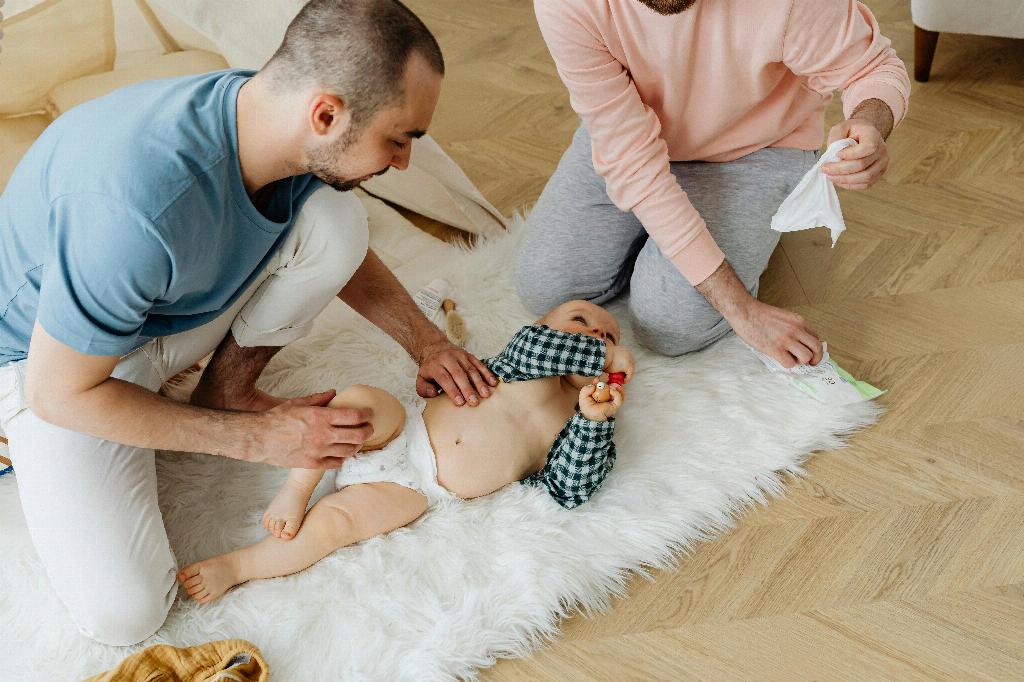When it comes to the frequency of urination in a 2-month-old baby, there are several factors to consider. Infants in this age group typically urinate quite frequently, and it is essential for parents to monitor their baby’s urinary patterns to ensure they are healthy and well-hydrated.
Frequent Urination Patterns
At 2 months old, babies may urinate as often as every 1 to 3 hours. This frequent urination is a normal part of their development as their tiny bladders have limited storage capacity and need to be emptied regularly. Therefore, parents should be prepared for diaper changes every few hours to ensure their baby stays dry and comfortable.
Infrequent Urination Occurrences
On the other hand, some 2-month-old babies may urinate less frequently, with intervals extending to every 4 to 6 hours. This variability in urinary patterns is normal, and as long as the baby is producing an adequate amount of urine throughout the day and appears healthy, there is usually no cause for concern.
Factors Affecting Urine Output
It is important to note that external factors such as sickness or hot weather can impact a baby’s urine output. During illness or in warm climates, a 2-month-old baby’s urine production may decrease by as much as half while still being considered within the normal range. Parents should keep an eye on their baby’s overall well-being and hydration levels in such circumstances.
Monitoring Urination
While it is crucial for parents to monitor their baby’s urine output, it is equally important to pay attention to the quality of urination. Urination should never be accompanied by signs of discomfort or pain. If a baby appears to be in distress or displays unusual behaviors during urination, it is advisable to consult a pediatrician to rule out any underlying issues.
Ensuring Hydration
Proper hydration is key to maintaining a healthy urinary system in infants. Parents should ensure that their 2-month-old baby is receiving adequate breast milk or formula to meet their fluid requirements. Monitoring wet diapers and urine output can be useful indicators of a baby’s hydration status and overall well-being.
Consulting a Healthcare Provider
If parents have concerns about their baby’s urination frequency or notice any changes in urinary patterns that seem unusual, it is advisable to seek guidance from a healthcare provider. A pediatrician can provide personalized advice and address any underlying issues that may be affecting the baby’s urinary health.
Creating a Routine
Establishing a routine for diaper changes and monitoring urination patterns can help parents track their 2-month-old baby’s urinary habits effectively. By keeping a record of diaper changes and urine output, parents can ensure that their baby’s urinary system is functioning as expected and address any concerns promptly.
Encouraging Fluid Intake
Encouraging fluid intake through frequent feedings is essential for maintaining hydration levels in 2-month-old babies. Whether breastfeeding or formula feeding, ensuring that the baby receives adequate fluids throughout the day can support healthy urinary function and overall well-being.
Embracing Variability
It is important for parents to embrace the variability in urination patterns among 2-month-old babies. While some infants may urinate more frequently than others, what matters most is that the baby is producing a sufficient amount of urine to signify proper hydration and kidney function.
Seeking Professional Advice
If parents have concerns or questions about their 2-month-old baby’s urination frequency, consulting with a healthcare provider can offer reassurance and guidance. Healthcare professionals can provide insights tailored to the baby’s individual needs and offer support in monitoring urinary patterns effectively.
Ensuring Comfort and Hygiene
Maintaining the baby’s comfort and hygiene during diaper changes and monitoring urination frequency is essential. Using gentle cleansing products and ensuring that the diaper area remains clean and dry can help prevent skin irritation and discomfort, promoting overall well-being in the baby.
Final Thoughts
In conclusion, understanding the typical urination patterns of a 2-month-old baby and being attuned to any changes or concerns is vital for promoting urinary health and overall well-being. By monitoring urine output, ensuring proper hydration, and seeking professional guidance when needed, parents can support their baby’s urinary system development and ensure a healthy start in life.

